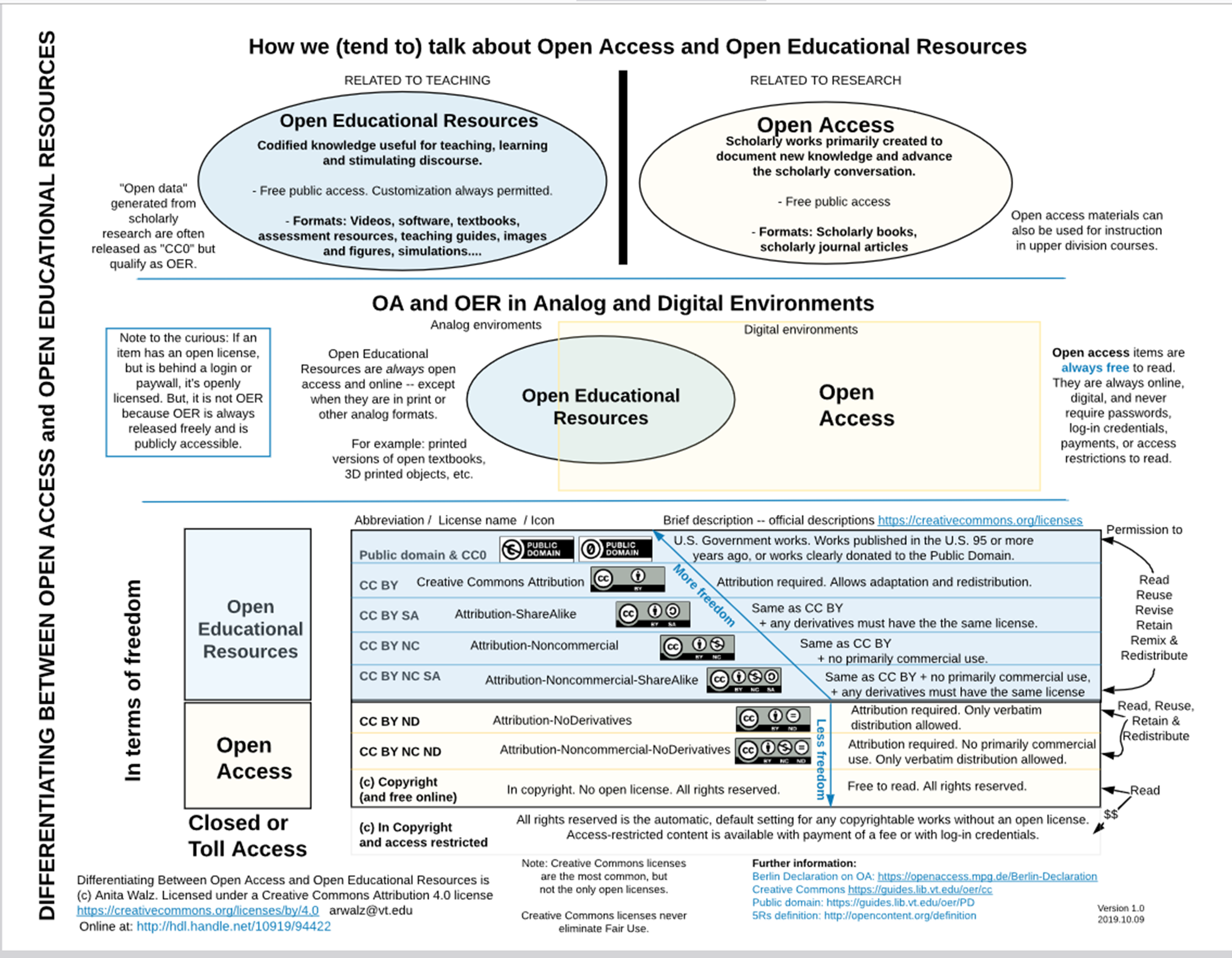Copyright and Licensing Basics
What is copyright?
Copyright is a legal term used to describe the rights that creators have over their literary and artistic works. Works covered by copyright range from books, music, paintings, sculpture, and films, to computer programs, databases, advertisements, maps, and technical drawings. The purpose of copyright is not only to protect the rights of the creators of works but also to ensure that there are opportunities for further research and creativity to be derived from earlier works.
Copyright laws are legislated by individual countries and may extend to a variety of different protections. Copyright is not just a US thing, copyright legislation exists throughout the world. Treaties serve as agreements to honor the copyright laws of other countries. Some well-known treaties include the Buenos Aires Convention and the Berne Convention for the Protection of Literary and Artistic Works.
-
World Intellectual Property Organization (WIPO)
WIPO maintains information on property rights (copyright, patents, trademarks) throughout the world. Look here for additional information on treaties.
OER – Copyright – Licensing
Did you know that in general anything that is found on the web is copyrighted? Yep, that is right. Copyrights provide protections to creators but sometimes make it difficult for others to reuse their works in the classroom or on the web.
The essence of Open Education(al) Resources lies in their ability to be shared, reused and adapted by future users. A resource is NOT an OER when there is a copyright holder who has not specified that their works are considered Public Domain or who has not developed a license to allow this reuse.
A license for sharing, reuse and remixing is necessary for most resources from the 20th and 21st centuries, whether from US or internationally, to be considered open. There are a number of licenses available; however, most creators of OER utilize a license tool called the Creative Commons License.
License your materials and assist other instructors around the world!
Creative Commons
The University of Arkansas’ Creative Commons libguide can be located at this link
What is Creative Commons?
Creative Commons is a non-profit organization that is dedicated to empowering individuals to legally use and re-use creative works through the development and availability of legal tools to supplement copyright globally.
Creative Commons licensing works with copyright and international property rights to provide legally binding tools for transferring some of the rights for a work from the rights holder to the user.
Materials that are licensed in this way encourage the re-use and re-mixing of works and provide greater public access.
legal term used to describe the rights that creators have over their literary and artistic works
a non-profit organization that is dedicated to empowering individuals to legally use and re-use creative works through the development and availability of legal tools to supplement copyright globally
the right to use a copyrighted work under certain conditions without permission of the copyright owner as allowed through copyright law



Feedback/Errata